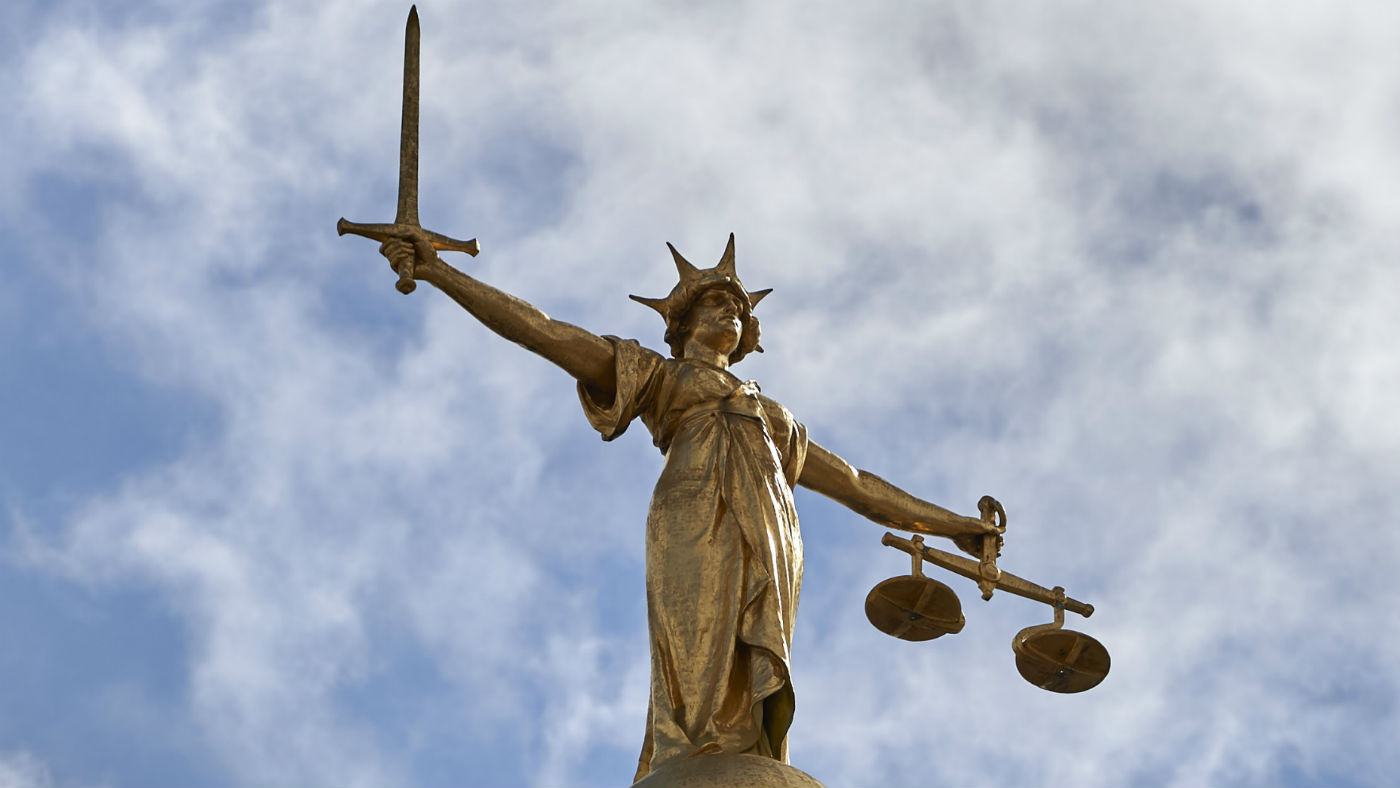Should suspected sex offenders remain anonymous?
Downing Street distances itself from new justice secretary, after backlash for suggesting ‘two-tier’ system of justice

A free daily email with the biggest news stories of the day – and the best features from TheWeek.com
You are now subscribed
Your newsletter sign-up was successful
The new justice secretary has faced a backlash from legal experts and censure from Downing Street after suggesting that people with criminal records should be less entitled to anonymity when accused of serious crimes than upstanding public figures.
In his first big interview since being promoted to the Cabinet, the Lord Chancellor Robert Buckland told The Times suspected sex offenders, fraudsters and others accused of serious crimes should remain anonymous until charged if they have a reputation to protect.
“Police and prosecutors have argued that the naming of suspects before charge assists in gathering evidence. That view is supported by some victims’ rights campaigners,” says the paper, but Buckland argued the law should be amended to allow judges to issue an order that suspects must not be identified.
The Week
Escape your echo chamber. Get the facts behind the news, plus analysis from multiple perspectives.

Sign up for The Week's Free Newsletters
From our morning news briefing to a weekly Good News Newsletter, get the best of The Week delivered directly to your inbox.
From our morning news briefing to a weekly Good News Newsletter, get the best of The Week delivered directly to your inbox.
The former prisons minister, who took over from David Gauke last week, supported a campaign fronted by Sir Cliff Richard and Paul Gambaccini calling for sex offence suspects to remain anonymous until charged.
It comes amid the ongoing fallout from the conviction of Carl Beech, whose claims that he was sexual abused by a series high-profile pubic figures in the 1970s and 80s sparked a multi-million pound police inquiry. A jury later ruled he had fabricated the entire story.
The Guardian says the case “has reignited the debate over whether those accused of sexual offences should be named before they are charged”. The paper notes the police took almost a year to announce that Gambaccini would not face charges as there was insufficient evidence to prosecute him, while Richard was not publicly cleared until two years after his Berkshire flat was raided in 2014.
While Buckland’s comments have been welcome by the likes of Daniel Janner QC, son of falsely accused Labour peer Lord Greville Janner, and founder of pressure group Falsely Accused Individuals for Reform (Fair), they have also sparked controversy for suggesting those with reputations to protect should remain anonymous while anonymity would be less justifiable for those with a previous criminal record.
A free daily email with the biggest news stories of the day – and the best features from TheWeek.com
“Let’s say you are a reputable local business person who is accused of fraud. Your good name is going to be really undermined by this mere accusation. That might be a meritorious case for anonymity” he said. On the other hand, “let’s say you are a person with a list of previous convictions. You’ve committed offences. There is intelligence out there that suggests that other victims might come forward. Is that a case where anonymity should be automatic?”
His suggestion of a two-tier system provoked a furious backlash from legal experts and human rights advocates.
Chris Henley, QC, chairman of the Criminal Bar Association, criticised the proposals for going against the principle of open justice.
“Open, transparent justice is a fundamental principle of our system. The law must be applied equally whoever you are; money and apparent status should never be a card that can be played by the powerful to hide behind,” he said.
Meanwhile, the Society of Editors Executive director Ian Murray said: “It is absurd to suggest that, in a liberal democracy, we are going to create a system of justice that enables the rich, the powerful, and celebrities to be protected when they are under investigation for serious crimes but the ordinary man or woman would be offered no such protections.”
“What would exist is a state of affairs where the actions of the police when investigating and arresting citizens cannot be reported on by the media. This is surely one of the worst aspects of a totalitarian state.”
Senior media law specialists also questioned the justice secretary’s judgment in making the comments on such a sensitive issue on his first day in post.
The Daily Mail says his comments were “slapped down” by Number 10 with Politico’s Jack Blanchard reporting Downing Street was “deeply unimpressed” as it “all but hung the minister out to dry”.
“This is not government policy,” a spokesman said. Furthermore Boris Johnson appeared to snub Buckland’s call for suspects to be granted anonymity, with the Ministry of Justice also disavowing the new justice secretary, instead referring all enquiries to Downing Street.